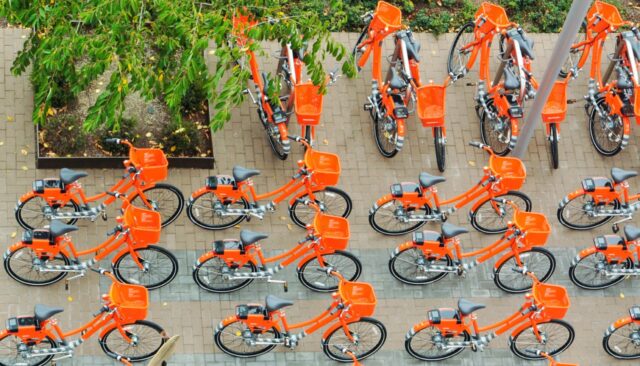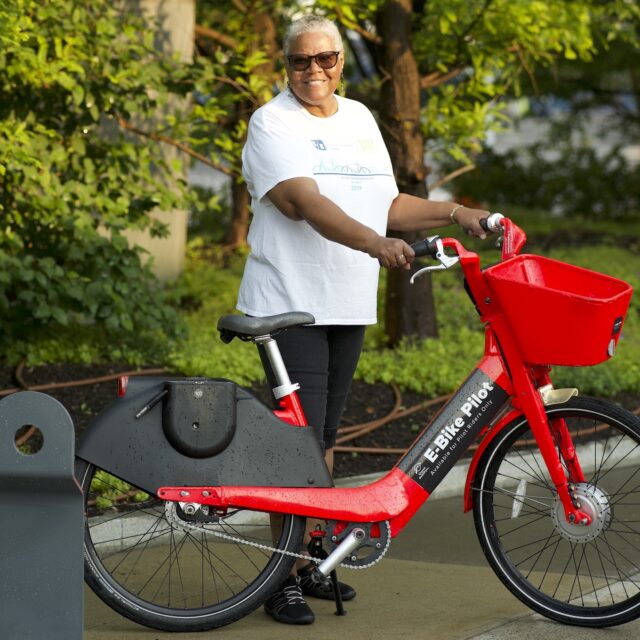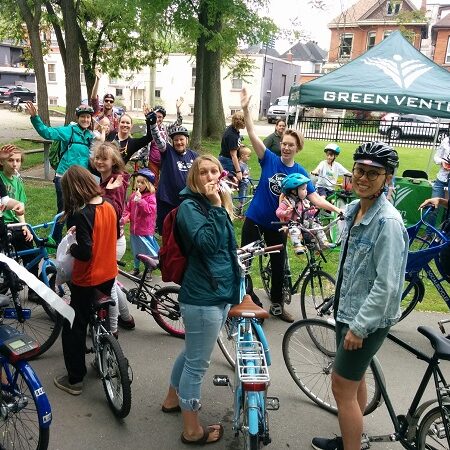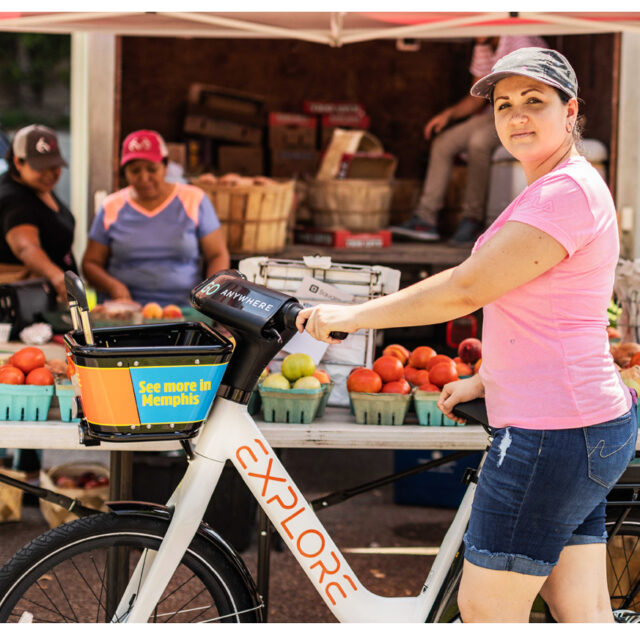What Should Systems Do With Retired Bikes?
by Kiran Herbert, Communications Manager
September 29, 2021
Options range from donating an old fleet to creating new community programming — we examine two different tactics in Portland, Oregon, and Memphis, Tennessee.

Last year, Biketown announced it was shifting to an electric-assist fleet and retiring some 1,000 bikes.
When Biketown, the bike share system in Portland, Oregon, shifted to a completely electric-assist fleet in September 2020, the city’s users were stoked. Not only did the move accompany an expansion and guaranteed service through 2025 but it also made the system more accessible. The only downside appeared to be the question that plagues systems everywhere: What to do with the retired bikes?
At first, Portland considered selling the bikes but ultimately decided to donate them instead, reaching out to cities in Oregon first. That led to a 100-bike portion of the fleet going to Bend in order to restart its bike share system. For Steve Hoyt-McBeth, bike share program manager at the Portland Bureau of Transportation (PBOT), it was important that the bikes continue to be used for bike share. When Hamilton, a city in Ontario, Canada, expressed interest in the remaining bikes to be used in its system, the partnership felt right.
“Hamilton was an early-adopter of smart-bike technology,” says Hoyt-McBeth. “Portland directly benefited from Hamilton’s early experiences, and we’ve continued to share information. Donating our Biketown bikes to Hamilton is a satisfying act of giving back.”
Hoyt-McBeth first became acquainted with Peter Topalovic, Hamilton’s project and program manager of sustainable mobility, through NABSA’s social networks. Over the years, the pair have stayed in touch, sharing information about their cities’ use of Social Bicycles bike share technology. Since Portland’s old bikes are only compatible with systems that also use this technology, the options for re-use were somewhat limited. Not only was Hamilton still using the same hardware but it was in the midst of an expansion.
“The timing was perfect,” says Topalovic, who was also motivated by the environmental implications. “It’s important to make use of previously used technologies instead of buying new ones.”
In total, Hamilton will be getting some 650 bikes from Portland, not all of which will be roadworthy right away. Considering the need for new parts, tune-ups, rebranding and technology upgrades, it’s still an investment for Hamilton to take the old bikes and make them good as new. As a result, Topalovic says that when the city does ultimately expand to e-bikes, it wants ones that will be compatible with Social Bicycle technology. Before Biketown switched to pedal-assist e-bikes, the city eliminated the possibility of a hybrid system as being costly and something its operator, Lyft, wasn’t willing to accommodate for a variety of reasons.
When Explore Bike Share, in Memphis, Tennessee, made the switch to electric-assist bikes, it opted to maintain a hybrid system. Still, to make way for the new bikes, the majority of its traditional fleet was retired. When deciding what to do with them, the nonprofit zeroed back in on its mission to make bicycling more accessible to more people, creating two new programs: A Community Bike Loan Program, which shares the bikes with community-based organizations in historically marginalized areas, and the Breaking Barriers Program, which will sell and rent the bikes to local high schools to create bicycling clubs.
“We’ve always had a commitment and a goal to reach as many communities as possible but we have found that there’s less ridership in certain neighborhoods and that the biggest barrier is cost,” says Anton Mack, executive director of Explore Bike Share. “The reality is that some people can’t afford any fee at all. So how do we get more people out and riding in communities where they can’t afford to make any contribution?”
Both of Explore’s new programs are pilots and the challenge will be figuring out how to sustain them financially. For the Community Bike Loan Program, partner organizations include The Works, Knowledge Quest and Westwood-Indian Hills & Neighboring Developments (WIND), which operate in traditionally underserved neighborhoods. Through these organizations, all of which received 10 bikes apiece, residents in need of transportation and/or healthy exercise can borrow a bike. Right now, Explore is offering the bikes and their maintenance on loan and free of cost while collecting data on usage and working to secure grant funding. It’s also in discussions with additional community organizations to get them on board.
Mack has high hopes for the program, which he believes will impact more people than bike share alone ever could.
“The best community outreach comes from the organizations that are on the ground every day, providing lots of resources directly in their neighborhoods,” says Mack. “When we work together, we can share the cost of the program but also make it reach a lot further.”
The Breaking Barriers program is in the same vein as the Community Bike Loan Program but broader, helping to create bicycling clubs in schools, as well as maintaining the bikes and offering educational classes. The program—which is also soliciting funding—acknowledges that in addition to cost, there are multiple cultural barriers that prevent people from biking. Through its programming, it will work to break down those barriers in the communities it serves.
“It’s the culture shift that’s important and we don’t want the barrier of money to stop us from changing that culture,” says Mack.
If the programs seem ambitious, it’s because they are. Mack acknowledges that while a bike share operator isn’t the ideal organization to necessarily lead them, the retired bikes provided an opportunity and Explore ran with it. While money is the major concern for the program’s long-term success, it’s a near-perfect use for the old bikes. Plus, as Explore continues to add e-bikes to its system, there will only be more donated bikes available to support it.
Regardless of whether retired bikes go to expand a bike share system or create entirely novel programming, any option is better than the Uber method of simply trashing old e-bikes. Even amidst that environmental fiasco, however, Shared Mobility Inc. (SMI), a nonprofit in upstate New York, saw an opportunity, reaching out to salvage 3,000 of the retired bikes. This summer, it launched an e-bike lending library and e-pilot program, laying the groundwork for a more affordable, accessible and sustainable shared micromobility system.
Has your bike share system retired a fleet of bicycles? We’d love to know what you did with them or planning to do. Email kiran@peopleforbikes.org.



